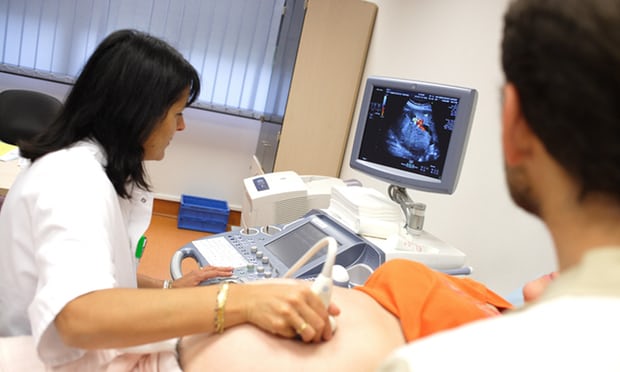Doctors have developed a more accurate test for Down’s syndrome and two rarer genetic disorders that are so serious the children often die soon after birth.
UK hospitals that adopted the test as part of a medical project found that it picked up nearly all affected pregnancies and slashed the number of women who wrongly tested positive, sparing them the anxiety of needless follow-up tests.
Five NHS maternity units used “reflex DNA screening” between April 2015 and August 2016, during which nearly 23,000 pregnancies were checked for Down’s, Edwards and Patau syndromes. All of the conditions are caused by the presence of an extra chromosome in the baby’s cells.
According to a report in Genetics in Medicine, the new procedure detected 101 of 106 pregnancies affected by the disorders, or 95%, compared with 81% for the conventional test used in hospitals. The rate of false positives, where babies were wrongly identified as having a condition, fell 100-fold with reflex DNA screening to two in 10,000. Compared with regular screening, the new procedure avoided 530 invasive tests to diagnose the disorders.
The conventional screening test for Down’s and other chromosomal disorders involves a blood test and an ultrasound scan at 10 to 14 weeks, which are combined with the mother’s age to work out her risk of carrying an affected baby. If the risk is more than one in 150, the woman is offered an invasive test to confirm the diagnosis. The diagnostic tests require a needle to be inserted into the woman’s womb to collect fluid around the foetus or tissue from the placenta.
Reflex DNA screening draws on the same blood and ultrasound tests, but if the risk of an affected pregnancy is higher than one in 800, then some of the blood already taken from the mother is sent for DNA analysis. This looks for fragments of DNA that have leaked from the placenta, which reveal whether the baby has the extra chromosomes. The woman is only alerted to the risk if the DNA tests positive.
The NHS plans to introduce a similar screening procedure in 2018, that will be offered to about 10,000 women a year who are considered to have a higher risk of giving birth to a baby with one of the conditions.
Wald said the procedure simplified the screening process and freed up clinic time because far fewer women had to be called back for follow-up tests. “This would potentially be offered to all pregnant women,” he added.
Joseph Aquilina, a consultant obstetrician at Barts Health NHS Trust, one of the five units that tried reflex DNA screening, said it was “transformational”. “Not only is the screening method better than current practice, but I have more time to devote to other clinical needs, as do the nursing and midwifery staff involved,” he said.
The doctors are now talking to other hospitals to see if they want to adopt the procedure. The five units that took part in the project are Barts Health NHS Trust, The Royal London, Whipps Cross and Newham, Kingston, and Liverpool Women’s Hospital.

